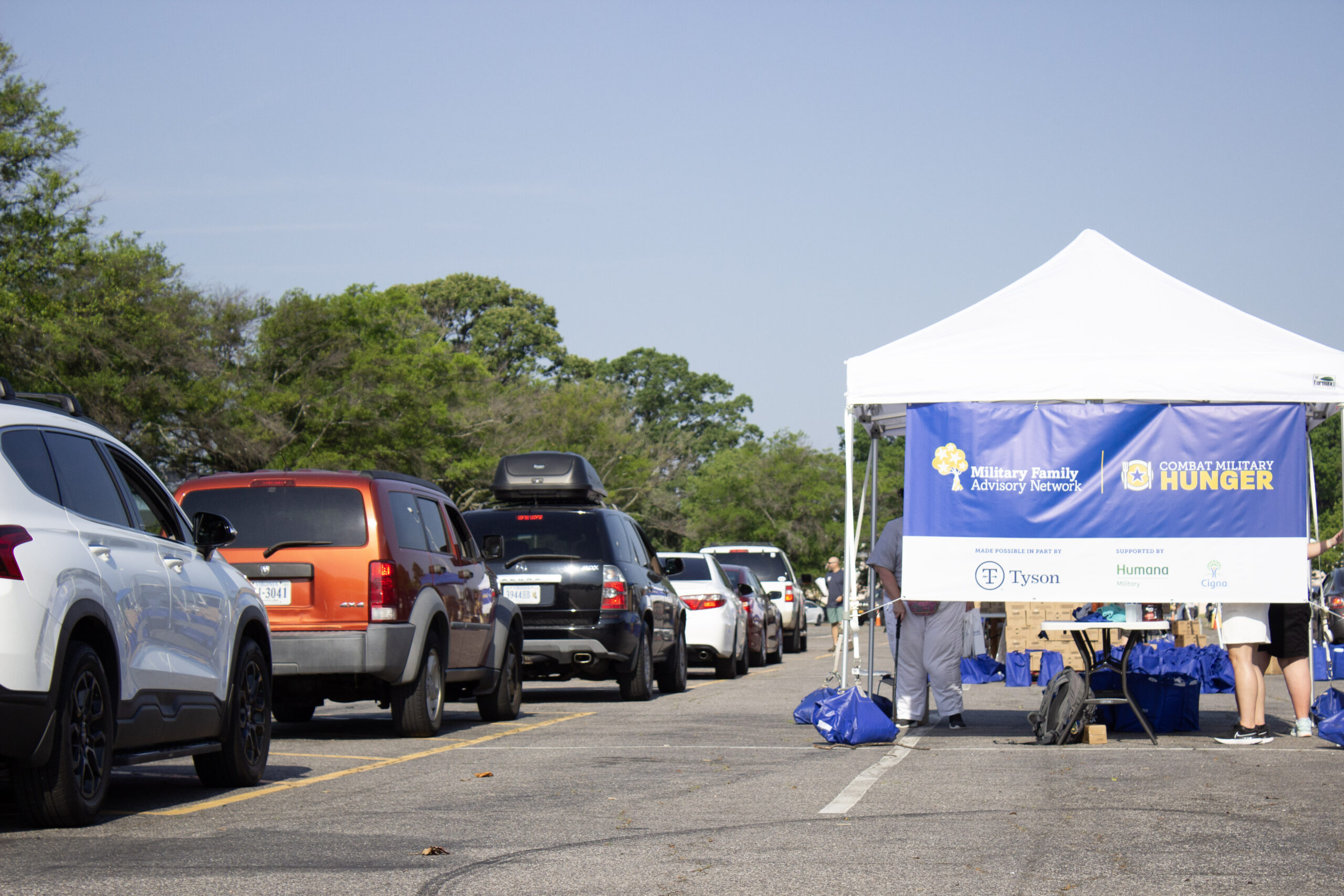Causal Factors of Food Insecurity
Why are 1 in 6 military & veteran family survey respondents food insecure?
Published in June 2022, the Causal Factors of Military and Veteran Family Food Insecurity report is a first-of-its-kind qualitative study that illuminates the challenges those who serve face when attempting to put food on the table.
From 2019 to 2021, MFAN and research partners at the University of Texas at Austin’s Institute for Military and Veteran Family Wellness conducted more than 300 interviews with food insecure military and veteran families to better understand the causal factors, and the resultant journeys, that can lead families to the point of food insecurity.
The years of research culminated in two research reports identifying the causal factors of military families residing throughout Texas (sponsored by the Bob Woodruff Foundation) or the Tidewater region of Virginia (sponsored by the Wounded Warrior Project). MFAN’s doctoral-level researchers analyzed the participants’ stories and grouped them into themes and subthemes to identify upstream moments in a family’s history that, if avoided, could have lessened or even eliminated their experiences with food insecurity down the road.

Full Report
Review the research findings in Texas and Tidewater Virginia, watch the data release event, and share with your networks.
The four core personas and two location specific personas – or causal factors – that emerged capture the food insecurity journeys of military-connected families:
- Spousal Unemployment: Families mentioned their military spouse is unemployed or underemployed. These families struggled to afford meat and produce but let their children eat balanced meals first.
- Growing Families: Families who recently had a child faced challenges in budgeting to buy food and many needed to prioritize paying bills over buying balanced meals.
- Recent Permanent Change of Station: These families struggled to make ends meet after a move. Some faced delays in permanent change of station (PCS) reimbursement through the military and many could not put balanced food on the table after a spouse was unemployed following a move.
- Unexpected expenses: Whether facing a vehicle repair or feeding children at home during the COVID-19 pandemic, these families were pushed into food insecurity because of costs they could not have predicted.
- External Systems Shock: Specific to Texas, families on the edge of food insecurity faced an uncharacteristic natural disaster in their area (i.e., ice storm) that disrupted their typical balance and shifted them into food insecurity.
- Rising Cost of Living: Military pay has not risen to meet growing inflation, carrying military families specifically in the Tidewater, Virginia area into food insecurity.

Back to the 2022 Annual Report
Relationships forged. Insights gained. Community fostered. Explore MFAN’s impact on military and veteran families in 2022.